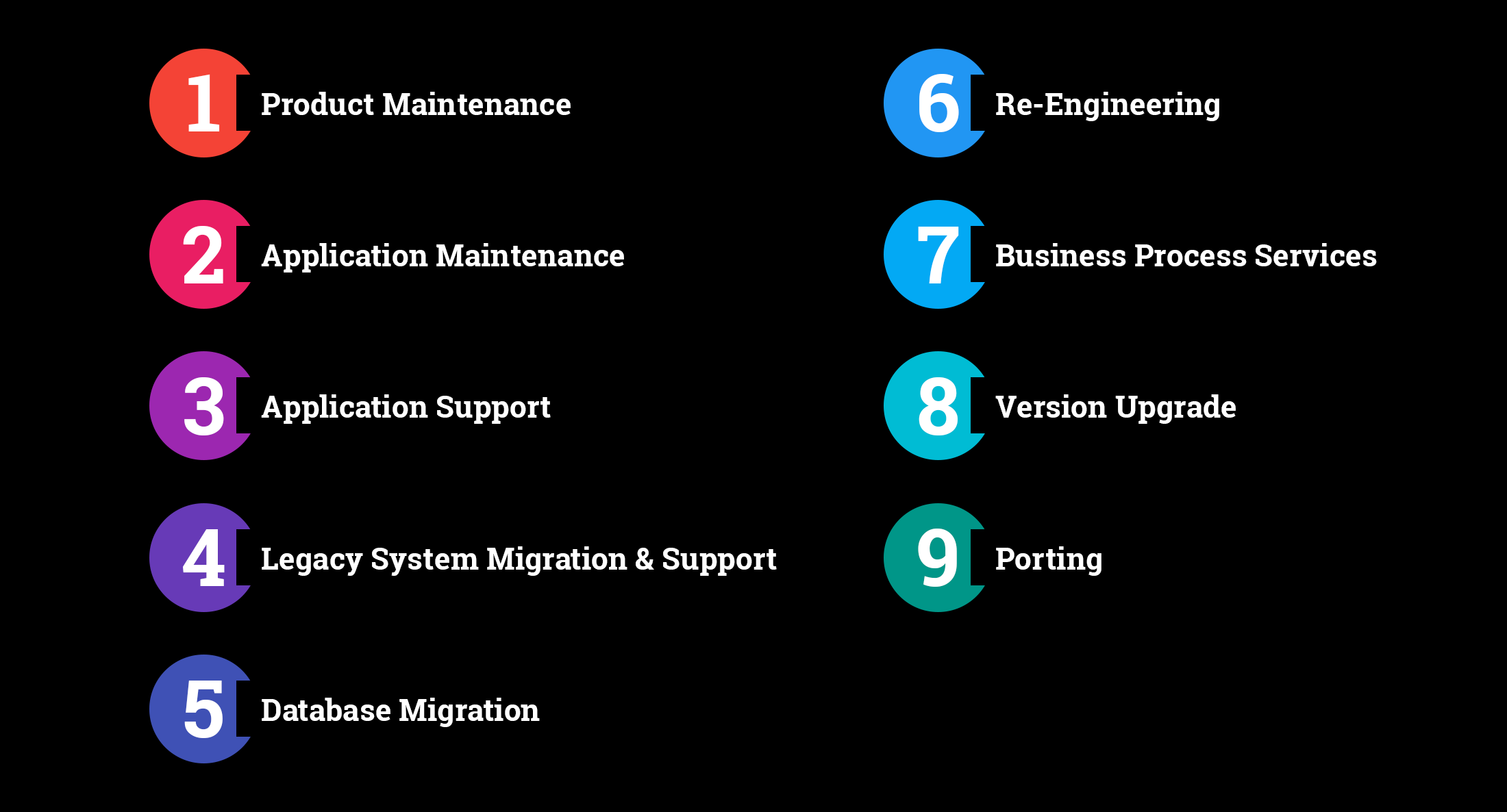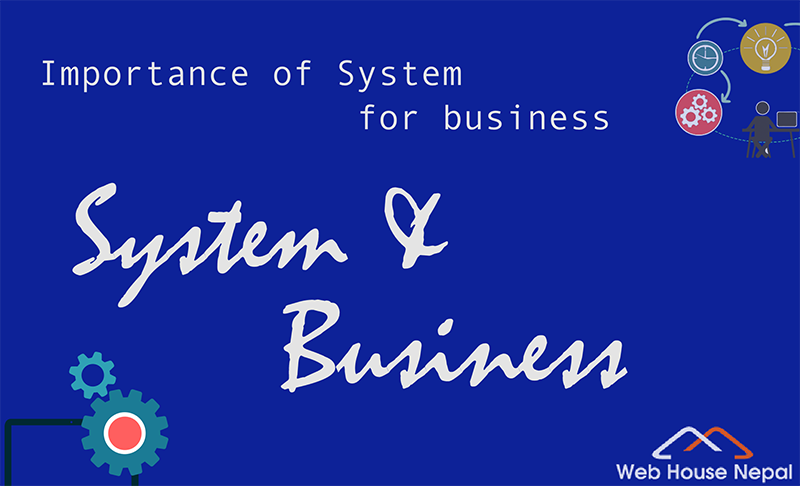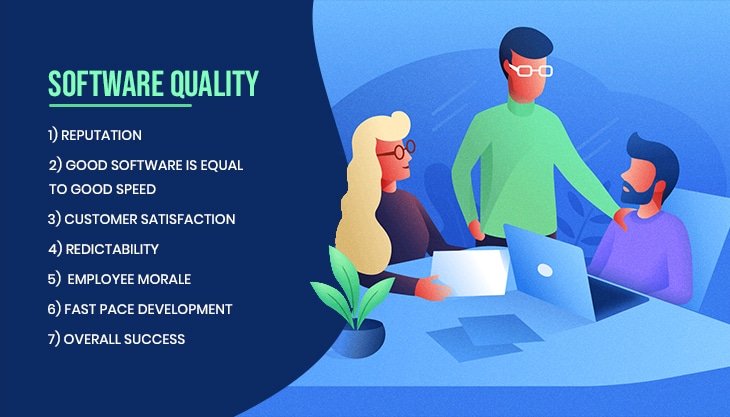Software is essential for modern businesses. It enhances efficiency and productivity.
In today’s digital age, software plays a critical role in business operations. It helps manage tasks, streamline processes, and improve customer experiences. Whether you run a small startup or a large corporation, software tools can boost your business. They aid in accounting, communication, project management, and more.
Without software, staying competitive is challenging. As technology advances, the importance of software in business grows. It not only saves time but also reduces errors and costs. Understanding its impact can help you make informed decisions for your business. Let’s explore how software is vital for business success.

Table of Contents
Introduction To Software In Business
Software has become an integral part of business operations. From managing customer relationships to streamlining supply chains, software plays a vital role. Businesses rely on software to improve efficiency, reduce costs, and gain a competitive edge. Understanding the importance of software in business is crucial for success in today’s digital age.
Historical Perspective
In the past, businesses operated with basic tools and manual processes. The introduction of computers in the mid-20th century changed everything. Early software applications focused on simple tasks like payroll and accounting. These applications made a significant difference in productivity.
Over time, software evolved to handle more complex operations. The 1980s saw the rise of enterprise resource planning (ERP) systems. These systems integrated various business functions into a single platform. By the 1990s, customer relationship management (CRM) software became popular. CRM software helped businesses manage interactions with customers more effectively.
Modern-day Relevance
Today, software is more critical than ever. Modern businesses use software for nearly every aspect of their operations. From marketing to logistics, software solutions are essential. Cloud computing and software-as-a-service (SaaS) have made software more accessible. Even small businesses can now afford powerful tools.
Automation is another key aspect of modern software. Automated processes save time and reduce human error. Data analytics software helps businesses make informed decisions. These tools analyze large amounts of data to provide valuable insights. Cybersecurity software protects sensitive information from threats. As cyber-attacks become more sophisticated, robust security measures are essential.
In summary, the role of software in business has grown tremendously. Both historical developments and modern advancements highlight its importance. Investing in the right software can lead to significant benefits for any business.
Enhancing Efficiency
Software plays a vital role in modern business operations. It enhances efficiency by automating tasks and streamlining processes. This saves time and reduces errors. Below, we will explore how software can improve efficiency through automation and process optimization.
Automating Routine Tasks
Automating routine tasks is one of the most significant benefits of using software in business. Software tools can handle repetitive tasks. This frees up employees to focus on more critical activities.
- Data entry
- Invoice generation
- Email marketing
These are just a few examples of tasks that can be automated. Automation reduces the risk of human error and increases productivity. As a result, businesses can operate more smoothly and efficiently.
Streamlining Processes
Software helps streamline business processes. It integrates various functions into one cohesive system. This provides a single source of truth for the organization. For example:
- Customer Relationship Management (CRM) systems
- Enterprise Resource Planning (ERP) systems
- Project Management tools
These systems enable better communication and coordination across departments. They ensure that everyone is on the same page. Streamlined processes result in quicker decision-making and improved overall efficiency.
Below is a table showing the benefits of streamlining processes:
| Benefit | Description |
|---|---|
| Improved Communication | Ensures all team members have access to the same information. |
| Faster Decision-Making | Provides real-time data for informed decisions. |
| Increased Productivity | Reduces time spent on manual tasks. |
By adopting software solutions, businesses can enhance their efficiency. This leads to better performance and competitive advantage.
Improving Communication
Effective communication is essential for any business. Software tools can help improve communication within an organization. Here, we discuss how software enhances communication through internal collaboration tools and customer relationship management systems.
Internal Collaboration Tools
Internal collaboration tools streamline communication among team members. These tools include:
- Instant messaging apps for quick conversations.
- Project management software to track tasks and deadlines.
- Document sharing platforms for collaborative work on files.
These tools help team members stay connected. They reduce the need for long email threads. They make it easier to share information and updates.
Using collaboration tools can lead to:
- Faster decision-making.
- Better teamwork.
- Increased productivity.
Customer Relationship Management
Customer Relationship Management (CRM) software helps manage interactions with customers. CRM systems store customer information in one place. They track customer interactions and sales.
Benefits of using CRM software include:
- Improved customer service.
- Better understanding of customer needs.
- Increased sales and customer retention.
CRM systems can also automate tasks. This allows employees to focus on building relationships with customers.
Features of CRM software include:
| Feature | Benefit |
|---|---|
| Contact Management | Organizes customer information. |
| Sales Tracking | Monitors sales activities and progress. |
| Customer Support | Improves response times and service quality. |
Overall, CRM software helps businesses build stronger relationships with customers. It also improves efficiency and productivity.

Data Management
Data management is crucial for businesses of all sizes. Efficient data management ensures that businesses can make informed decisions. It involves collecting, storing, and analyzing data. Software plays a vital role in this process. Let’s explore how software helps in data management through data collection and data analysis.
Data Collection
Data collection is the first step in data management. Businesses need to gather data from various sources. This can include customer information, sales records, and market trends. With software, data collection becomes easier and more accurate.
Here are some key benefits of using software for data collection:
- Automates the data collection process
- Reduces human error
- Enables real-time data collection
- Ensures data consistency
Software tools can pull data from different sources and consolidate it. This way, businesses have all the information they need in one place.
Data Analysis
Once data is collected, it needs to be analyzed. Data analysis helps businesses understand patterns and trends. Software makes data analysis faster and more efficient.
Benefits of using software for data analysis include:
- Identifies trends and patterns
- Provides actionable insights
- Supports decision-making
- Enhances forecasting abilities
Many software tools offer advanced features for data analysis. These features can include visualization tools, predictive analytics, and reporting capabilities. With these tools, businesses can make data-driven decisions that lead to growth and success.
| Benefit | Description |
|---|---|
| Trends and Patterns | Software helps in identifying significant trends. |
| Actionable Insights | Provides insights that can be acted upon. |
| Decision-making | Supports making informed business decisions. |
| Forecasting | Enhances the ability to predict future trends. |
In summary, software is essential for effective data management. It simplifies the processes of data collection and data analysis. This allows businesses to focus on growth and improvement.
Boosting Innovation
In today’s fast-paced business world, innovation is crucial. Software plays a key role in boosting innovation. It helps companies develop new products and deliver better services. Let’s explore how software can enhance innovation in product development and service delivery.
Product Development
Software tools speed up product development. They help teams collaborate better. With software, designers and engineers can work on the same project from different locations. This boosts creativity and speeds up the process.
Software also helps in prototyping. Creating prototypes quickly allows teams to test ideas faster. They can identify flaws early and make improvements. This leads to better products and saves time.
Another benefit is data analysis. Software can analyze large amounts of data. This helps in making informed decisions. Companies can understand market trends and customer needs better. They can develop products that meet these needs.
| Benefit | Description |
|---|---|
| Faster Collaboration | Teams can work together from different locations. |
| Quick Prototyping | Test ideas quickly and improve products. |
| Data Analysis | Make informed decisions based on data. |
Service Delivery
Software improves service delivery in many ways. Automation tools can handle repetitive tasks. This frees up employees to focus on more important work. It also reduces errors and increases efficiency.
Customer relationship management (CRM) software helps in managing customer interactions. It stores customer information and tracks communication. This helps in providing personalized services. Customers feel valued and are more likely to return.
Additionally, software can improve communication within the company. Tools like instant messaging and video conferencing make it easy to stay connected. This ensures that everyone is on the same page and can work together effectively.
- Automation of repetitive tasks
- Improved customer interaction with CRM software
- Enhanced internal communication
Software plays a vital role in boosting innovation. It helps in product development and service delivery. Companies that embrace software are more likely to succeed in today’s competitive market.

Cost Reduction
Cost reduction is a critical focus for businesses today. Effective use of software can significantly reduce costs. This includes both operational costs and resource allocation. Let’s explore how software impacts these areas.
Operational Costs
Software helps in reducing operational costs. Automation software handles repetitive tasks. This reduces the need for manual labor. For example, accounting software automates financial tasks. This reduces errors and saves time. Also, software for inventory management helps maintain optimal stock levels. This minimizes storage costs and reduces waste.
Additionally, cloud-based software reduces the need for physical hardware. This cuts down on maintenance and energy costs. SaaS (Software as a Service) models offer subscription-based pricing. This eliminates the need for large upfront investments. Companies only pay for what they use.
Resource Allocation
Effective resource allocation is crucial for cost reduction. Software provides tools to monitor and allocate resources efficiently. Project management software helps track project progress. It ensures that resources are used optimally. This reduces project delays and cost overruns.
Human resource management software helps in tracking employee performance. It identifies areas where training is needed. This improves productivity and reduces hiring costs. Furthermore, CRM (Customer Relationship Management) software improves customer interactions. This leads to better customer retention and reduced marketing costs.
| Software Type | Cost Reduction Area |
|---|---|
| Accounting Software | Reduces manual financial tasks |
| Inventory Management Software | Minimizes storage costs |
| Project Management Software | Optimizes project resources |
| HR Management Software | Improves employee productivity |
| CRM Software | Enhances customer retention |
Scalability And Flexibility
In today’s fast-paced business world, the importance of scalability and flexibility cannot be overstated. These qualities allow businesses to adapt to changes and grow without major disruptions. Investing in the right software can make all the difference.
Adapting To Market Changes
Market conditions are constantly evolving. Businesses need to stay flexible to stay competitive. Software solutions help companies adapt quickly. They enable swift changes in strategy and operations.
Consider a retail business. With the right software, they can change their inventory management system. They can respond to new consumer trends quickly. This keeps them ahead of the competition.
Here are some key benefits:
- Real-time data: Helps in making informed decisions.
- Automated processes: Reduces manual workload.
- Customizable features: Tailor software to meet specific needs.
Supporting Business Growth
Growth is a key goal for any business. As a business expands, so do its needs. Scalable software supports this growth. It handles increased workloads without compromising performance.
Imagine a small business growing into a medium-sized enterprise. They will need more robust systems. Scalable software allows this growth without needing a complete overhaul.
Some advantages include:
- Cost-effectiveness: Scalable software reduces the need for frequent upgrades.
- Efficiency: Streamlines operations, saving time and resources.
- Future-proofing: Prepares your business for future growth and challenges.
| Feature | Benefit |
|---|---|
| Real-time data | Informed decisions |
| Automated processes | Less manual work |
| Customizable features | Specific needs met |
| Cost-effectiveness | Less frequent upgrades |
| Efficiency | Time and resource saving |
| Future-proofing | Prepared for growth |
Security And Compliance
In today’s digital era, businesses rely heavily on software. One of the most critical aspects of using software in business is ensuring security and compliance. This means protecting sensitive data and meeting various regulatory requirements. Both are crucial for building trust and maintaining the integrity of your business operations.
Protecting Data
Data is the backbone of any business. Protecting it is paramount. Software solutions offer robust security measures to shield your data from breaches. These measures include:
- Encryption
- Firewalls
- Anti-virus programs
Encryption converts sensitive data into a secure format. Only authorized users can read it. Firewalls act as barriers against unauthorized access. Anti-virus programs detect and remove malicious threats.
Meeting Regulations
Every industry has its own set of regulations. Adhering to these rules is crucial. Non-compliance can lead to hefty fines and legal issues. Software helps businesses stay compliant by:
- Automating compliance checks
- Providing audit trails
- Ensuring data accuracy
Automated compliance checks ensure your business processes meet regulatory standards. Audit trails offer a record of all activities, ensuring transparency. Accurate data management helps prevent errors that could lead to non-compliance.
Choosing The Right Software
Choosing the right software is crucial for any business. It impacts productivity, efficiency, and overall success. Selecting software that fits your specific needs can streamline operations and lead to significant cost savings. Below, we explore how to choose the right software by assessing business needs and evaluating software options.
Assessing Business Needs
Before selecting software, identify your business requirements. Understand what your business lacks or what needs improvement. Create a list of essential features. Consider the following questions:
- What are the primary functions of your business?
- What tasks are time-consuming or prone to errors?
- What is your budget for software solutions?
Assessing your needs will guide you in finding software that addresses specific pain points. Involve key stakeholders in this process. Their input will provide valuable insights into daily operations.
Evaluating Software Options
Once you understand your needs, start evaluating available software options. Compare different software based on features, cost, and user reviews. Here are some steps to follow:
- Research multiple software providers.
- Request demos or free trials to test functionality.
- Read reviews from other users in your industry.
- Check the software’s scalability and integration capabilities.
A table can help compare software options:
| Software | Features | Cost | User Reviews |
|---|---|---|---|
| Software A | Feature 1, Feature 2 | $$ | 4.5/5 |
| Software B | Feature 3, Feature 4 | $$$ | 4.0/5 |
Choose software that fits your budget and offers the necessary features. Read user reviews to understand potential issues or benefits. Ensure the software can grow with your business. This will prevent future headaches and additional costs.
Future Trends
The future of business software is bright. New technologies continue to emerge, making operations smoother and more efficient. Businesses must stay updated with these trends to remain competitive. Here are some significant future trends in business software:
Artificial Intelligence
Artificial Intelligence (AI) is transforming business software. It offers numerous benefits, including:
- Automation: AI automates repetitive tasks, saving time and reducing errors.
- Data Analysis: AI analyzes large data sets quickly, providing valuable insights.
- Customer Service: AI-powered chatbots improve customer service by providing instant responses.
AI is also enhancing decision-making processes. It can predict trends, helping businesses plan better. Integrating AI into business software is becoming a necessity.
Cloud Computing
Cloud Computing is another vital trend. It allows businesses to store and access data over the internet. The key benefits include:
- Scalability: Easily scale resources up or down based on demand.
- Cost-Efficiency: Reduce costs by paying only for what you use.
- Accessibility: Access data from anywhere, anytime, on any device.
Cloud computing also enhances collaboration. Teams can work together in real-time, regardless of location. It’s secure and reliable, ensuring data protection and business continuity.
| Trend | Benefits |
|---|---|
| Artificial Intelligence | Automation, Data Analysis, Improved Customer Service, Better Decision-Making |
| Cloud Computing | Scalability, Cost-Efficiency, Accessibility, Enhanced Collaboration |
Businesses must embrace these trends to thrive in the future. AI and Cloud Computing are not just trends but essential tools for growth and efficiency.
Frequently Asked Questions
Why Is Software Important For Businesses?
Software streamlines operations, enhances productivity, and reduces errors. It helps businesses manage tasks efficiently, saving time and resources.
How Does Software Improve Business Efficiency?
Software automates repetitive tasks, enabling faster completion and reducing human errors. This leads to increased efficiency and productivity.
What Types Of Software Are Essential For Businesses?
Essential software includes accounting, customer relationship management (CRM), project management, and communication tools. These improve various aspects of business operations.
Can Software Help In Decision-making?
Yes, software provides valuable data insights and analytics. This helps businesses make informed, strategic decisions.
Conclusion
Software is vital for business success. It streamlines tasks, saving time and money. Software improves accuracy, reducing human errors. It offers better data management and security. Businesses can make smarter decisions with software tools. It enhances communication and collaboration within teams.
Adopting the right software boosts productivity and growth. Businesses stay competitive and meet customer demands. Investing in software is essential for future-proofing operations. Make technology a priority to thrive in today’s market.



Leave a Reply